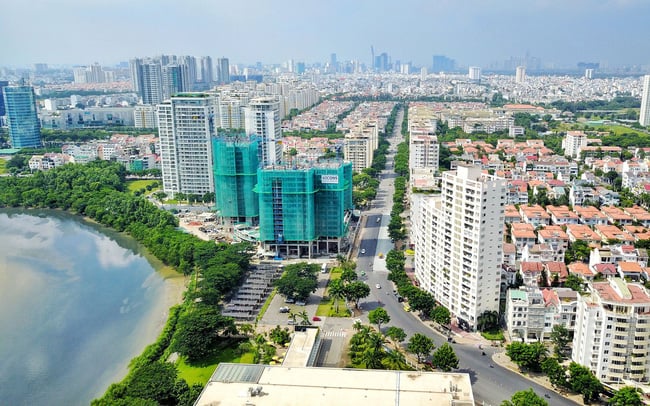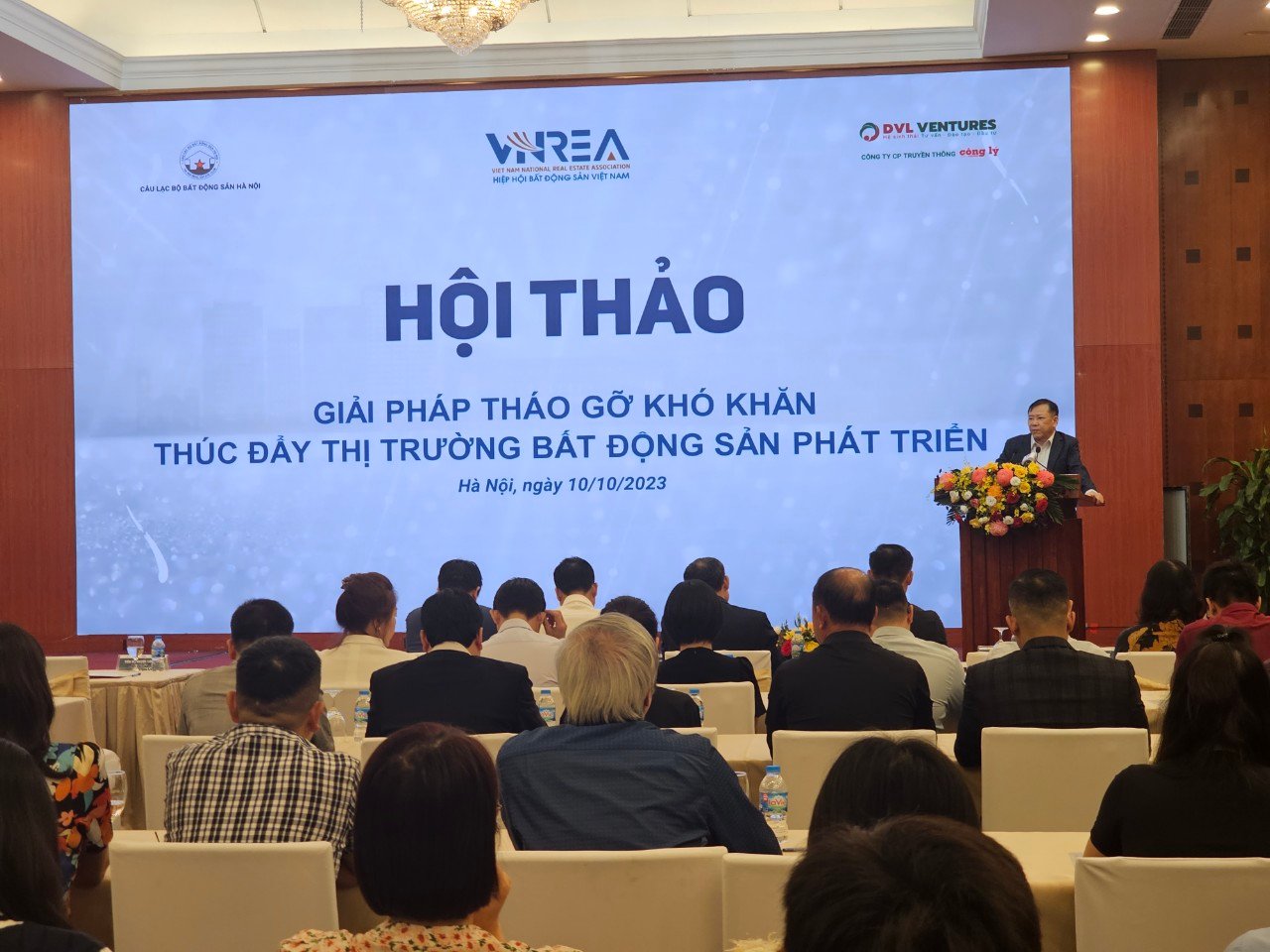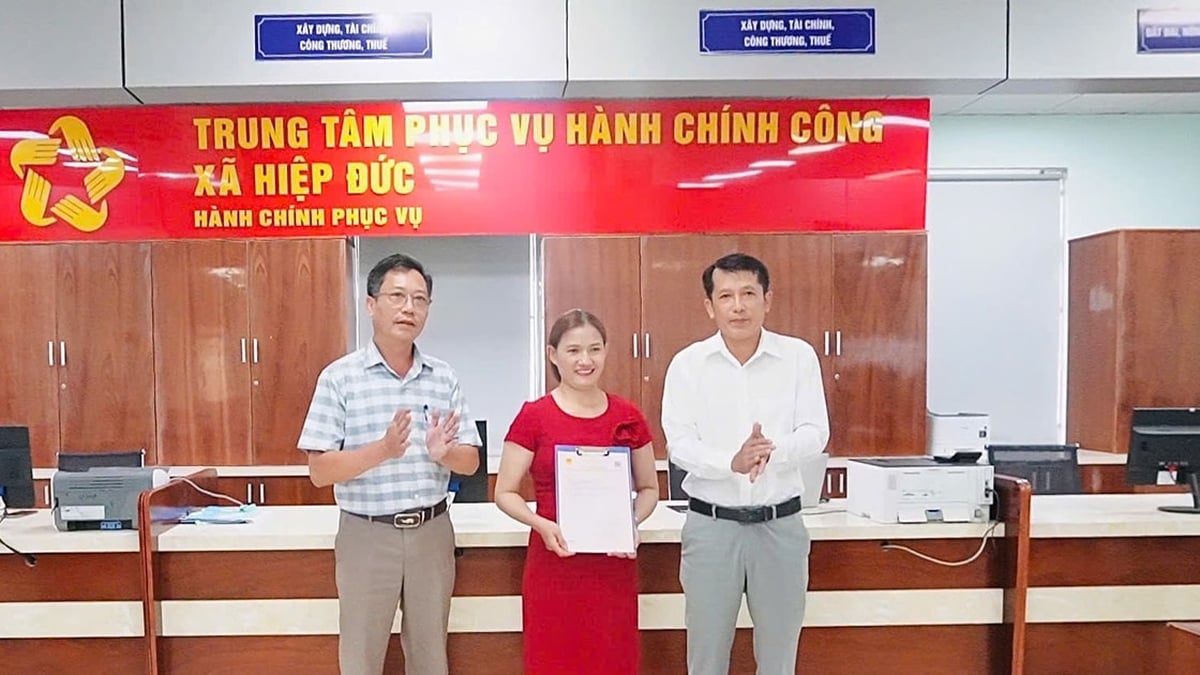According to the State Bank's report, by the end of June 2023, real estate credit is estimated to increase by about 4.7% compared to the end of 2022. Of which, real estate business credit increased by 18%, but housing credit decreased by 1.12%.
At the Workshop on Solutions to Removing Difficulties to Promote Real Estate Market Development, held on the afternoon of October 10, Dr. Can Van Luc, an economic expert, said that the real estate market still has a lot of growth potential and is still popular with investors. Thanks to that, real estate business credit is still increasing.

Investors are thinking carefully when deciding to borrow credit to invest in real estate. (Photo: DM)
However, housing credit has decreased, proving that people and investors are thinking very carefully when deciding to borrow money to buy, repair or build a house.
Analyzing this issue further, Mr. Luc said: Vietnam's economy is going through many difficulties and challenges. Therefore, although interest rates have recently tended to decrease, people and investors still hesitate very carefully before "pouring" money into the real estate market.
However, in the coming time, the trend of hesitation will be broken, when interest rates may decrease further. In particular, the economy is on the path of recovery and growth, thereby affecting the decision to invest in real estate. Thanks to that, the real estate market will have a breakthrough force.
In addition, Mr. Luc said that in order for the market to grow strongly and sustainably, in addition to the economic recovery factor, there needs to be synchronous solutions to remove the bottlenecks that are currently "suffocating" the market, such as the legal environment, real estate management and supervision methods, planning and infrastructure; finance,...
In particular, Vietnam is focusing mainly on legal and financial issues. In which, legal issues are the biggest barrier and difficulty, stemming from the following reasons: Legal regulations in the fields of land, construction and real estate are extremely complicated, involving more than 100 Laws, Decrees, Circulars... in which many regulations are overlapping, inconsistent and lacking in uniformity.
Next, legal regulations are incomplete, not guided promptly, not close to reality such as: regulations on land allocation, land lease in the field, methods of determining land prices; time of calculating land use fees, land rent; land rent exemption period during basic construction period; project operation period for projects with multiple land allocations; problems in procedures for selecting investors using land...
Finally, the fear of making mistakes, fear of responsibility, and shirking responsibility… slows down and even blocks many projects.
Faced with these challenges, Mr. Luc recommended continuing to perfect specific institutions to speed up the progress of amending related laws such as the Land Law, Housing Law, Real Estate Business Law, Securities Law, etc. Accordingly, it is necessary to review to ensure synchronization and consistency between related laws.

Overview of the Workshop. (Photo: Viet Vu)
Meanwhile, Dr. Nguyen Van Khoi, Chairman of the Vietnam Real Estate Association and former Vice Chairman of the Hanoi People's Committee, said that in the past two years, the real estate market has encountered major bottlenecks, causing businesses and investors to decline sharply.
In particular, from the second half of 2022, real estate businesses have fallen into a "dilemma" when projects are stalled, cash flow is blocked and debt repayment pressure is heavy. In particular, the stagnation of the real estate market in recent times has had the greatest impact due to legal problems accounting for 70% of the difficulties and problems of projects.
According to information from the Ministry of Construction , in Hanoi and Ho Chi Minh City alone, there are an estimated 400 projects facing procedural problems. These bottlenecks have lasted for many years but have not been resolved.
In practice, some localities lack initiative and determination in directing and resolving difficulties and problems within their authority, and have an avoidance mentality, as well as in coordinating with central agencies to resolve difficulties for businesses. In addition, many legal regulations are overlapping, and the application of the law is inconsistent and inconsistent.
According to Dr. Nguyen Van Khoi, recently, the Government and Ministries and Branches have issued many mechanisms and policies that directly and indirectly impact the real estate sector.
Mr. Khoi believes that the above policies can remove many bottlenecks in the real estate market, but more comprehensive solutions are needed including legal procedures, access to capital to create liquidity and product supply.
Source



































































































Comment (0)